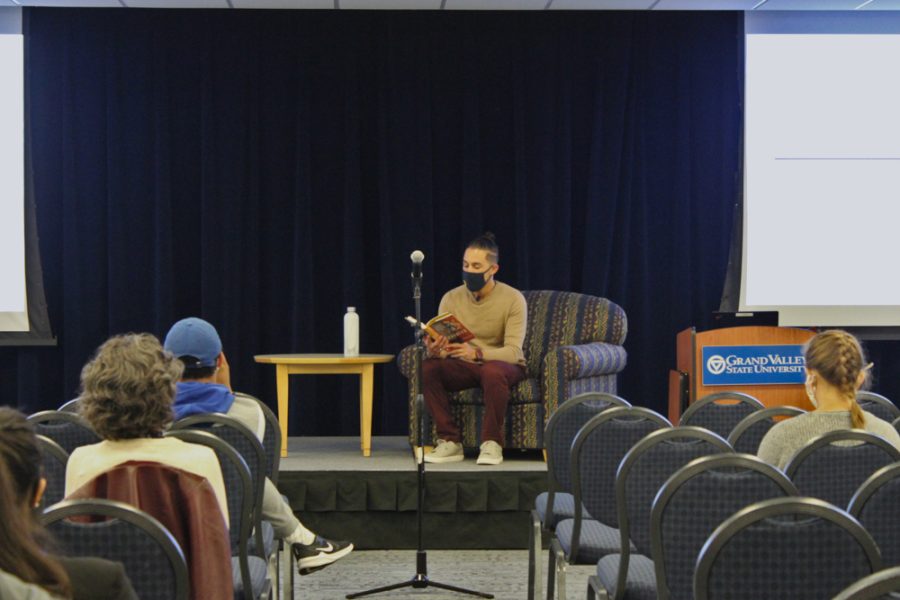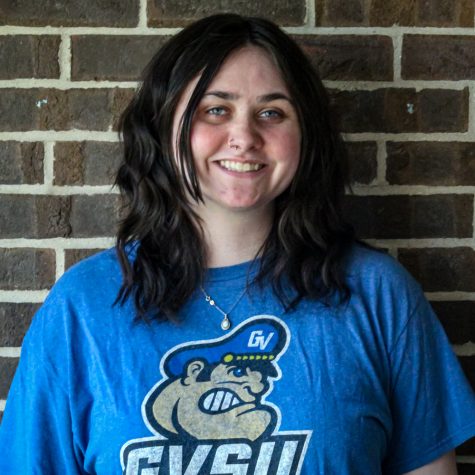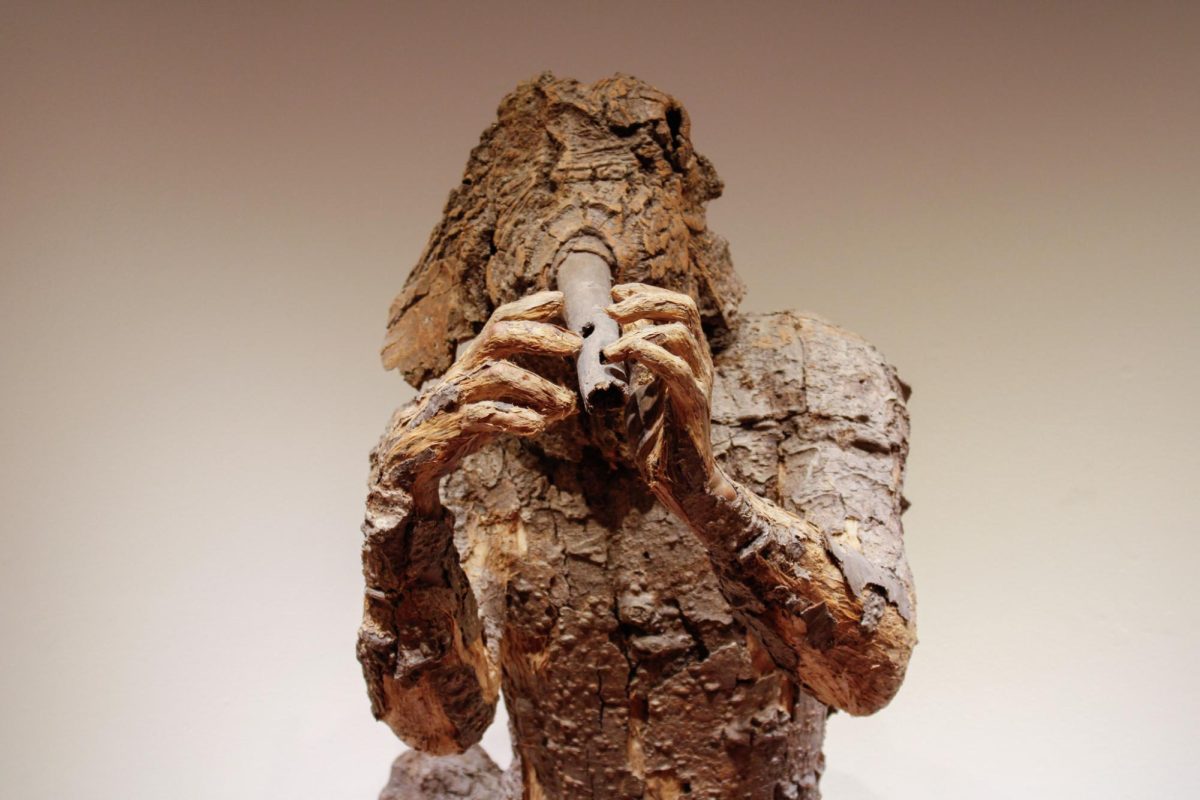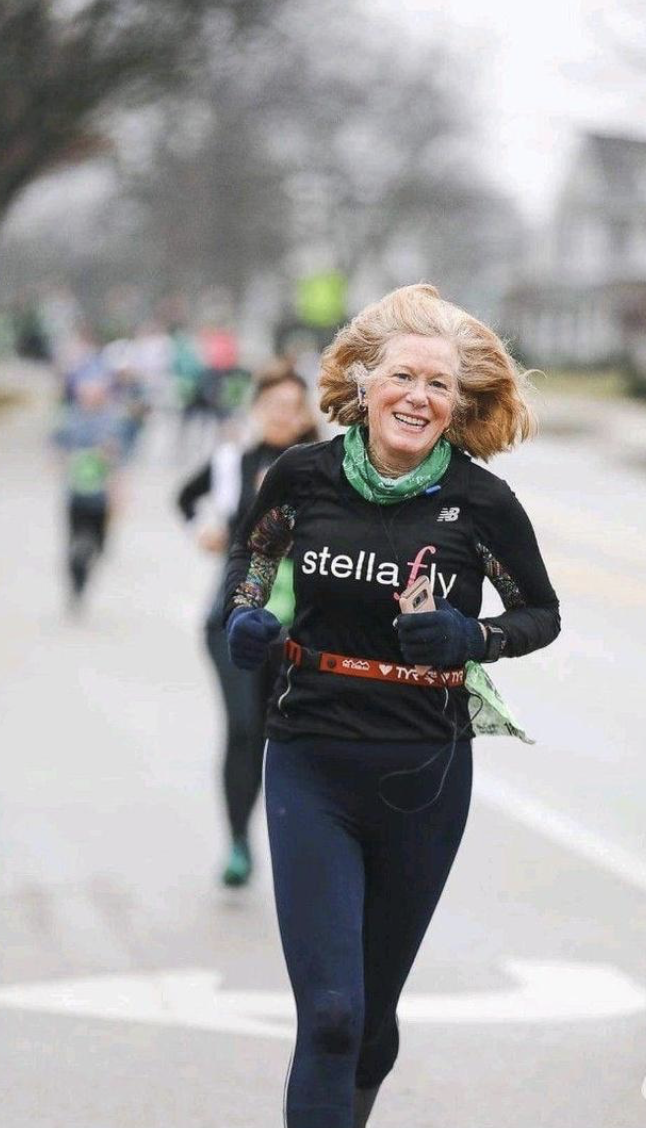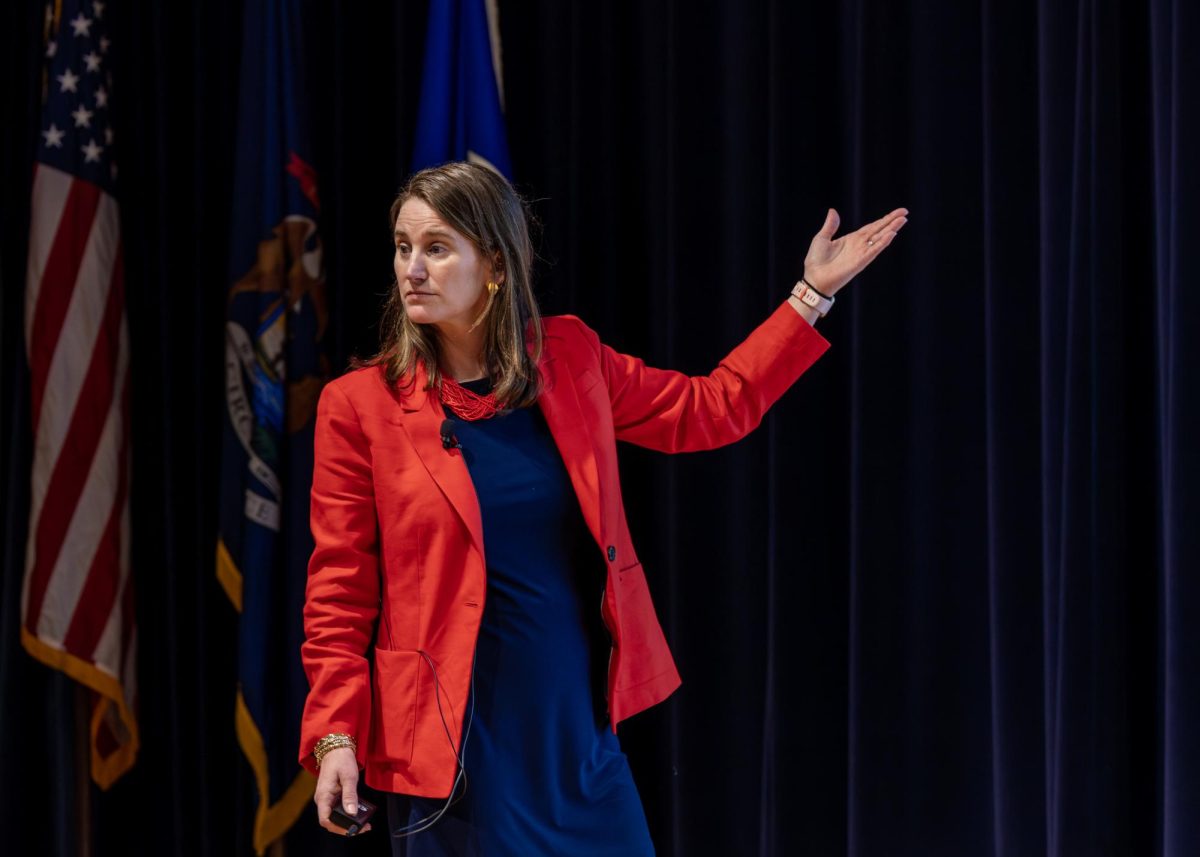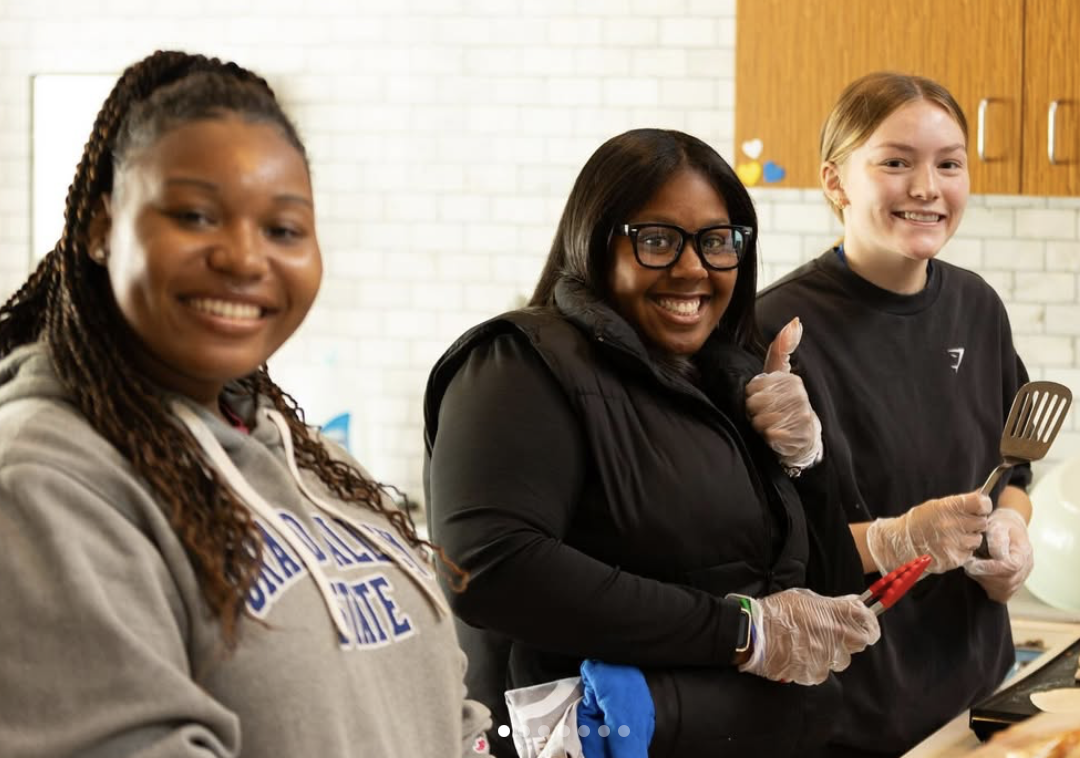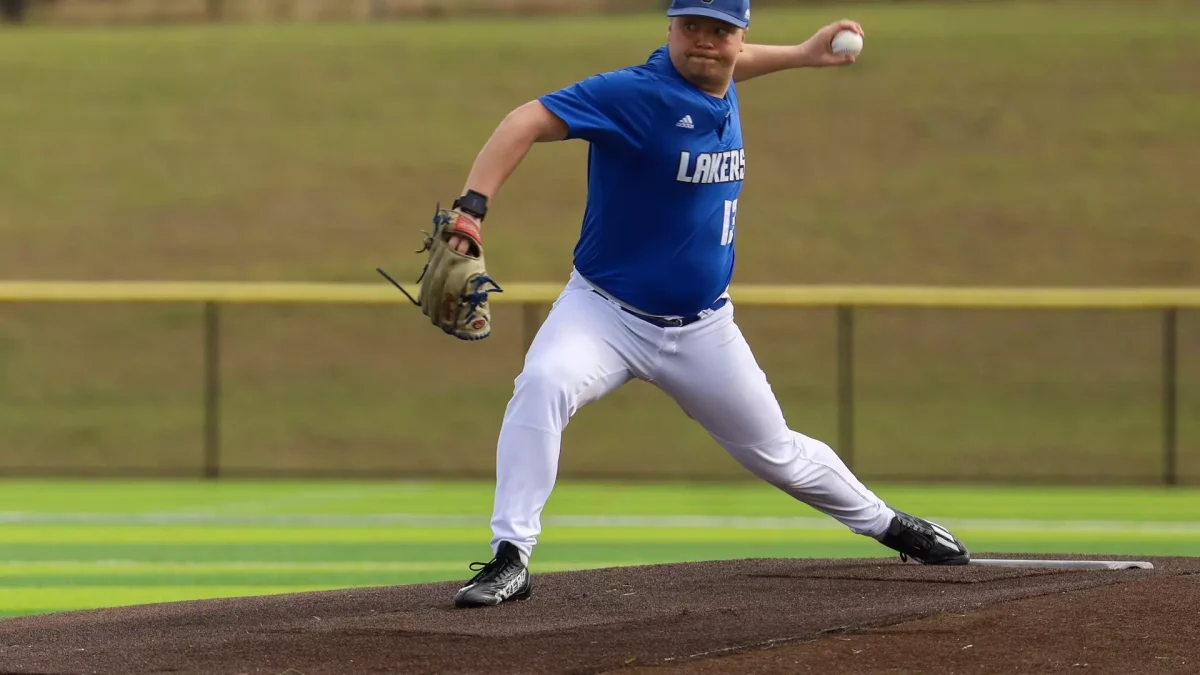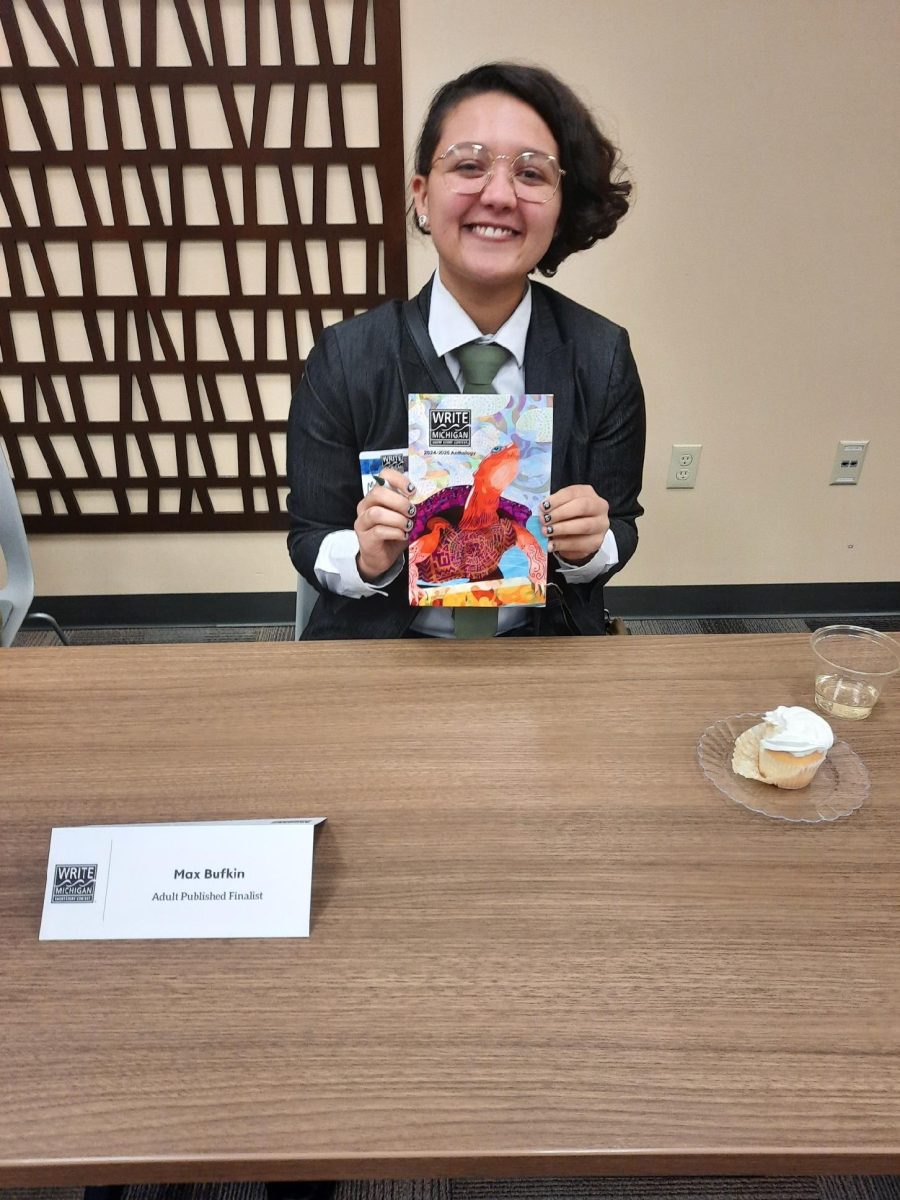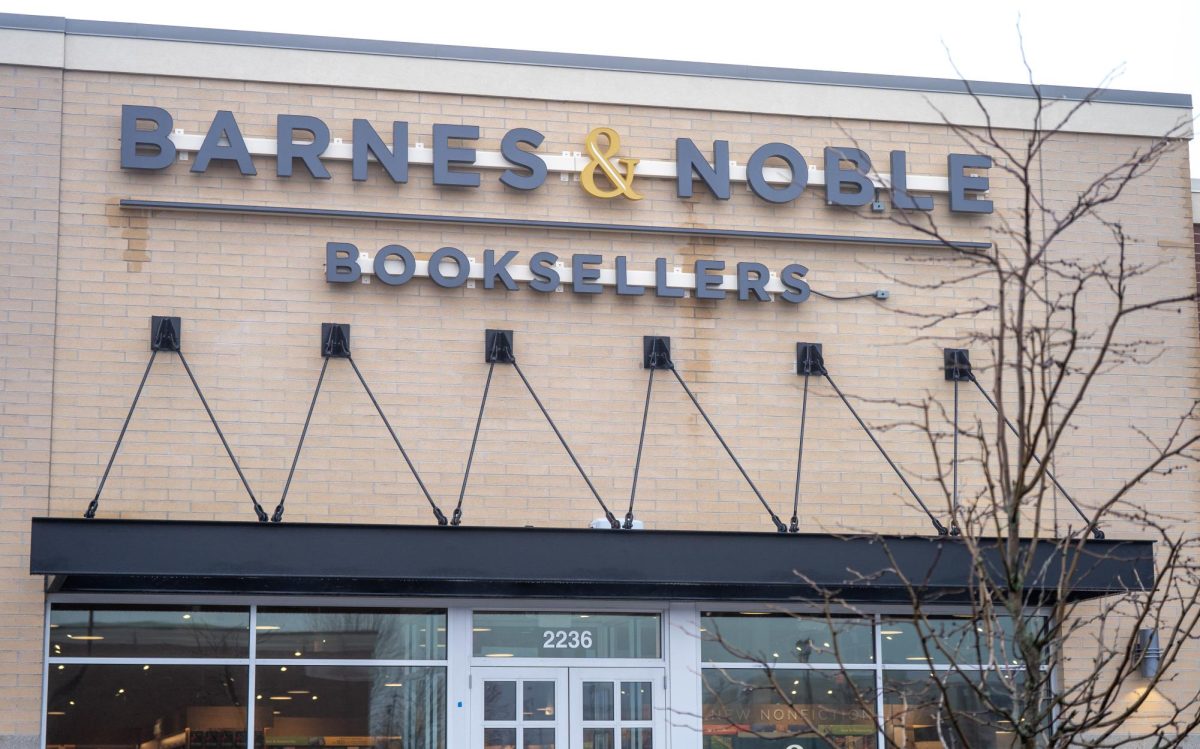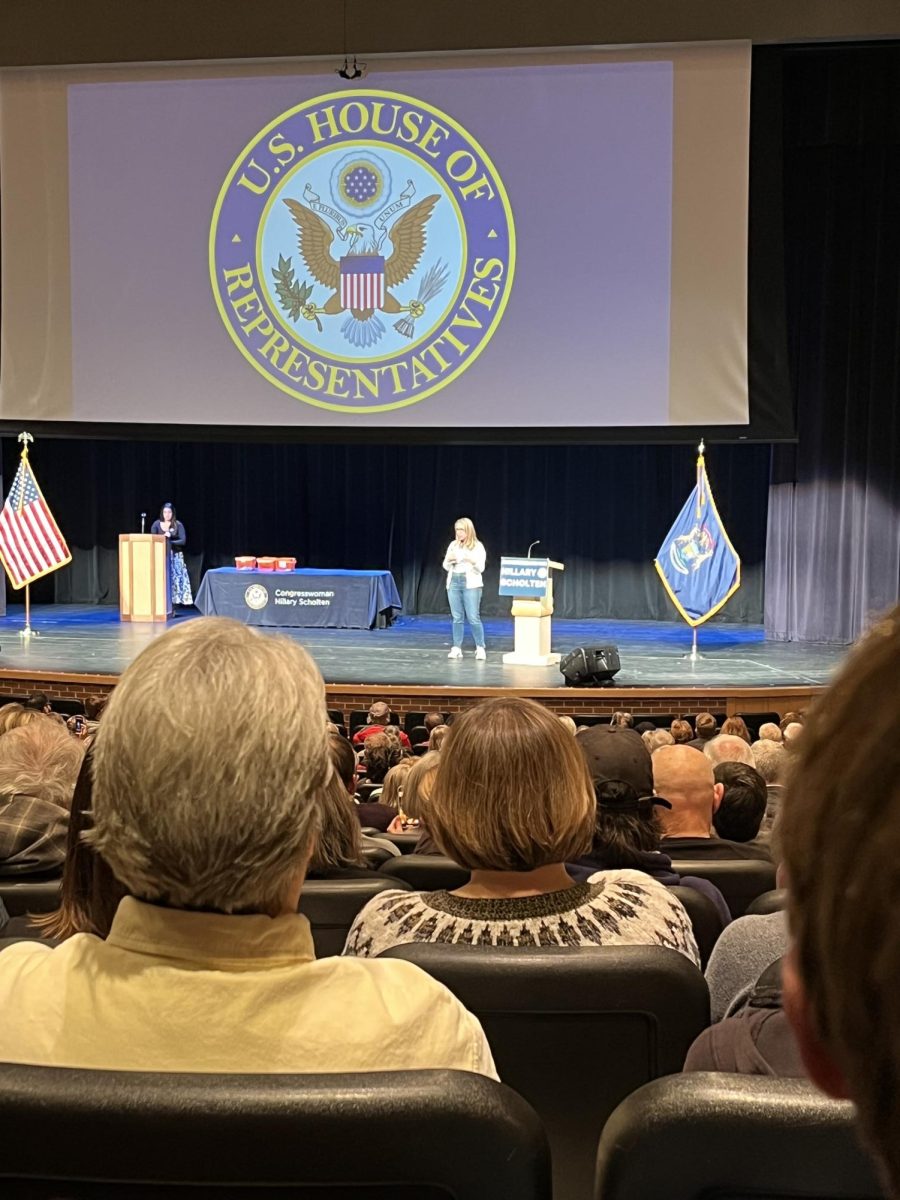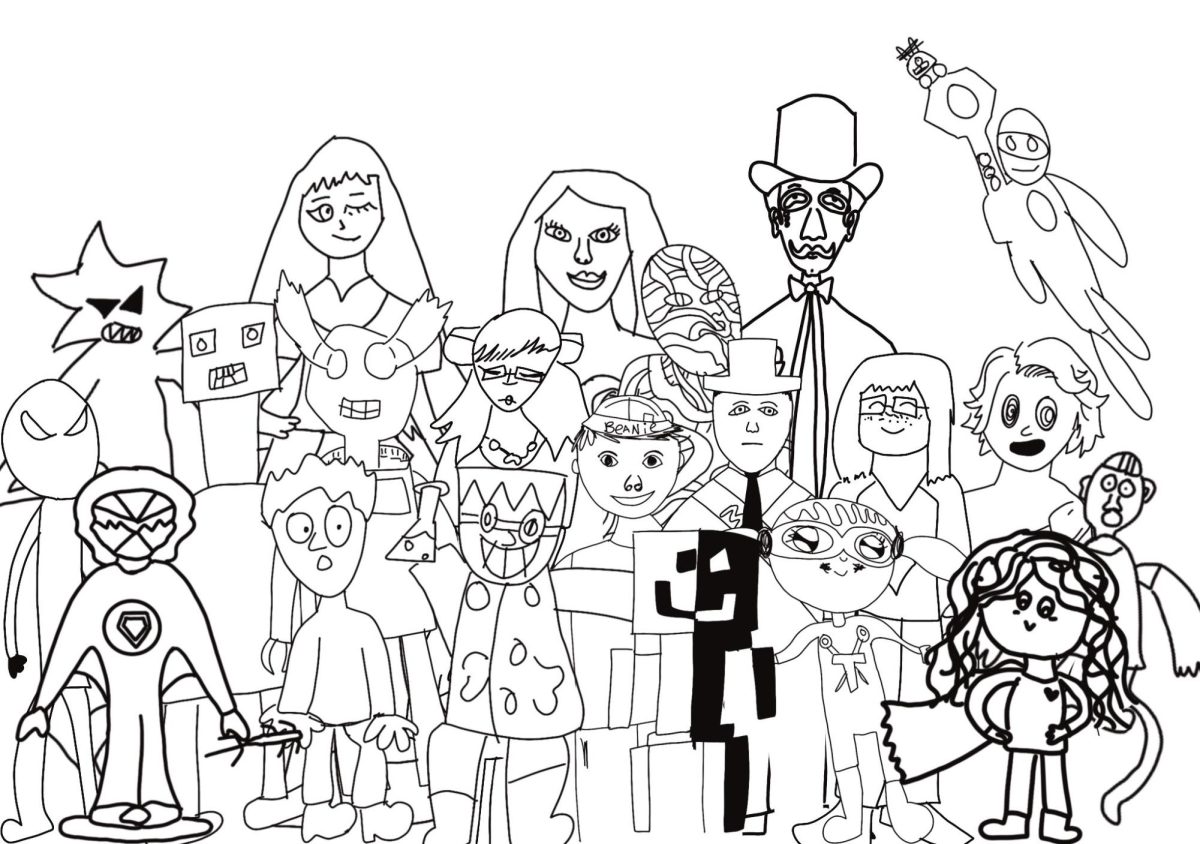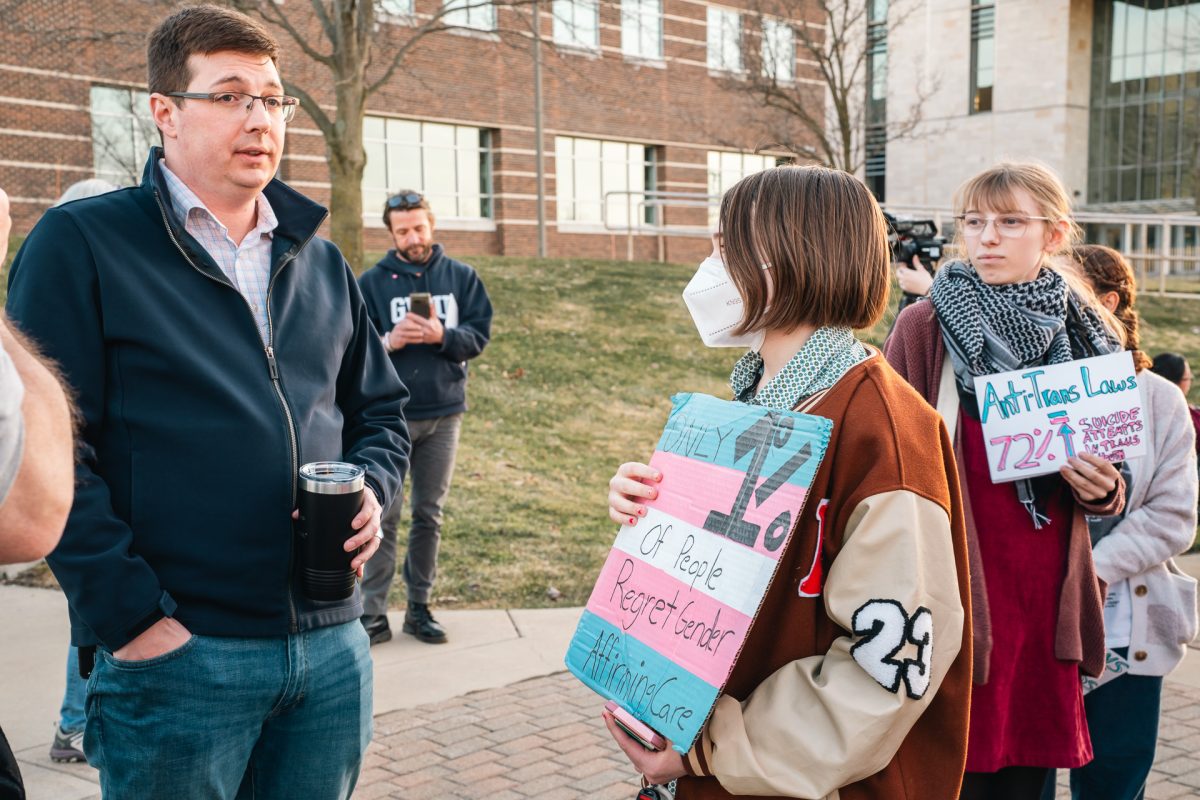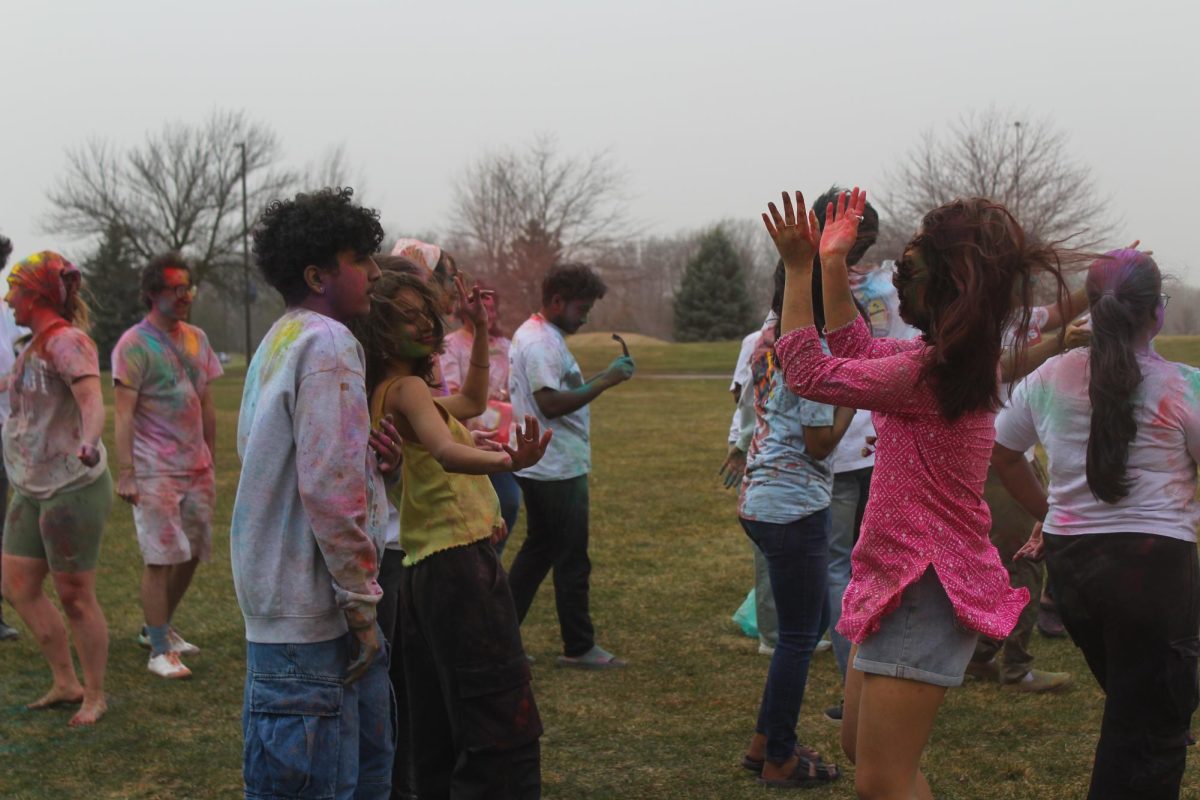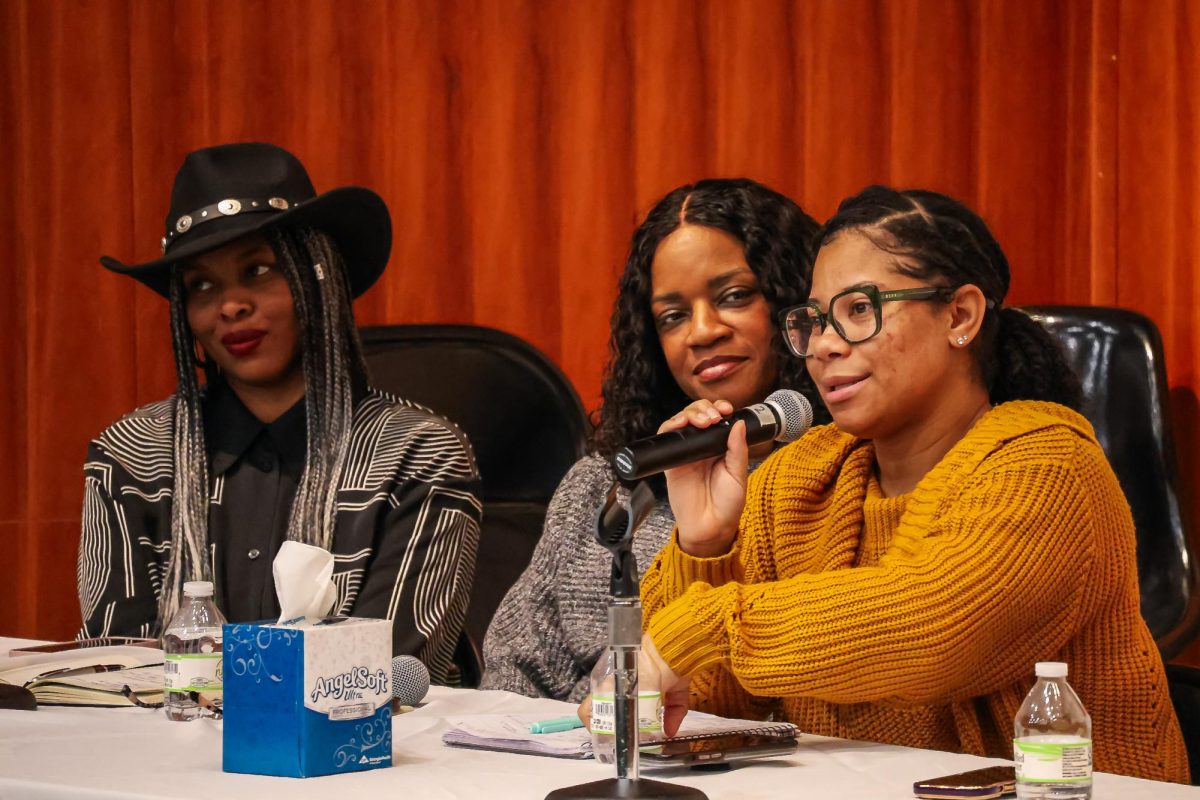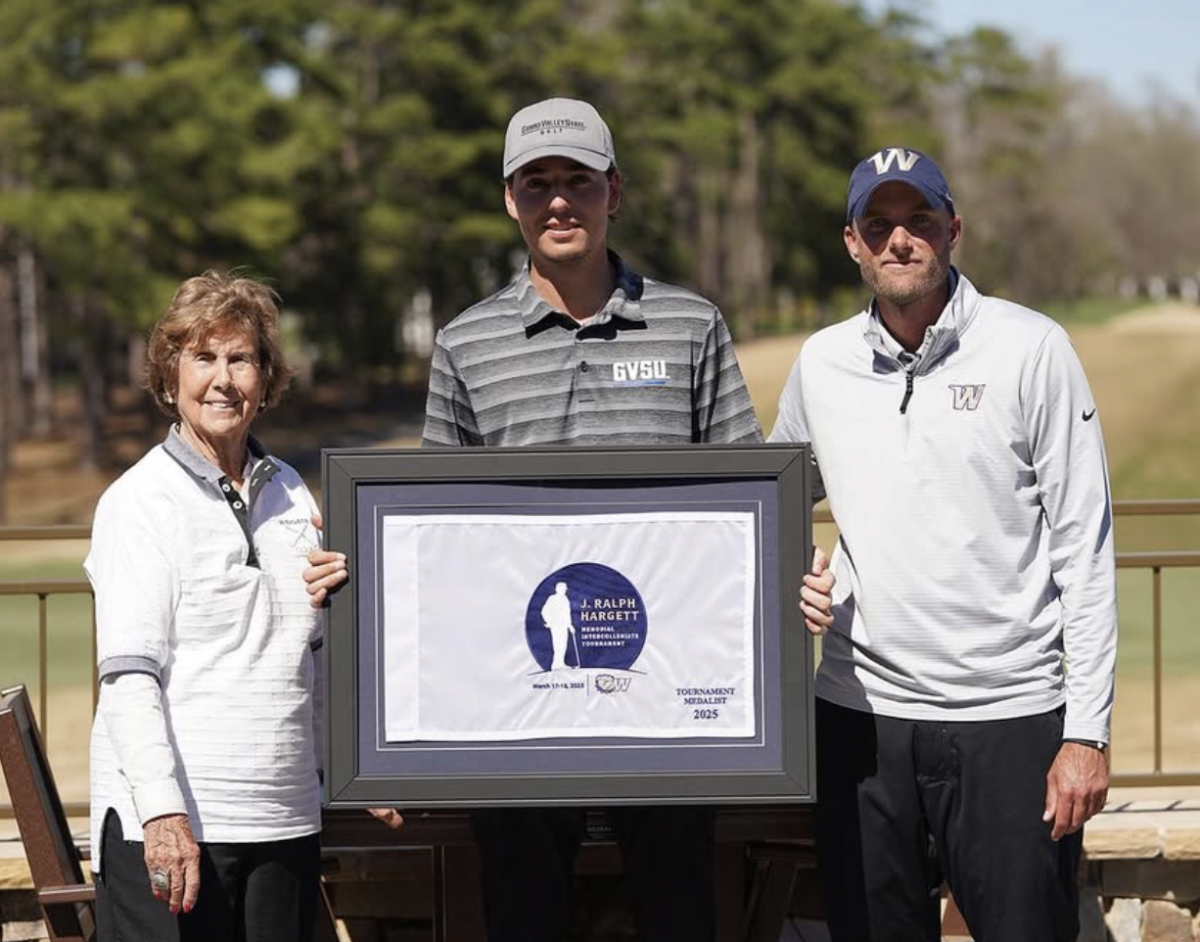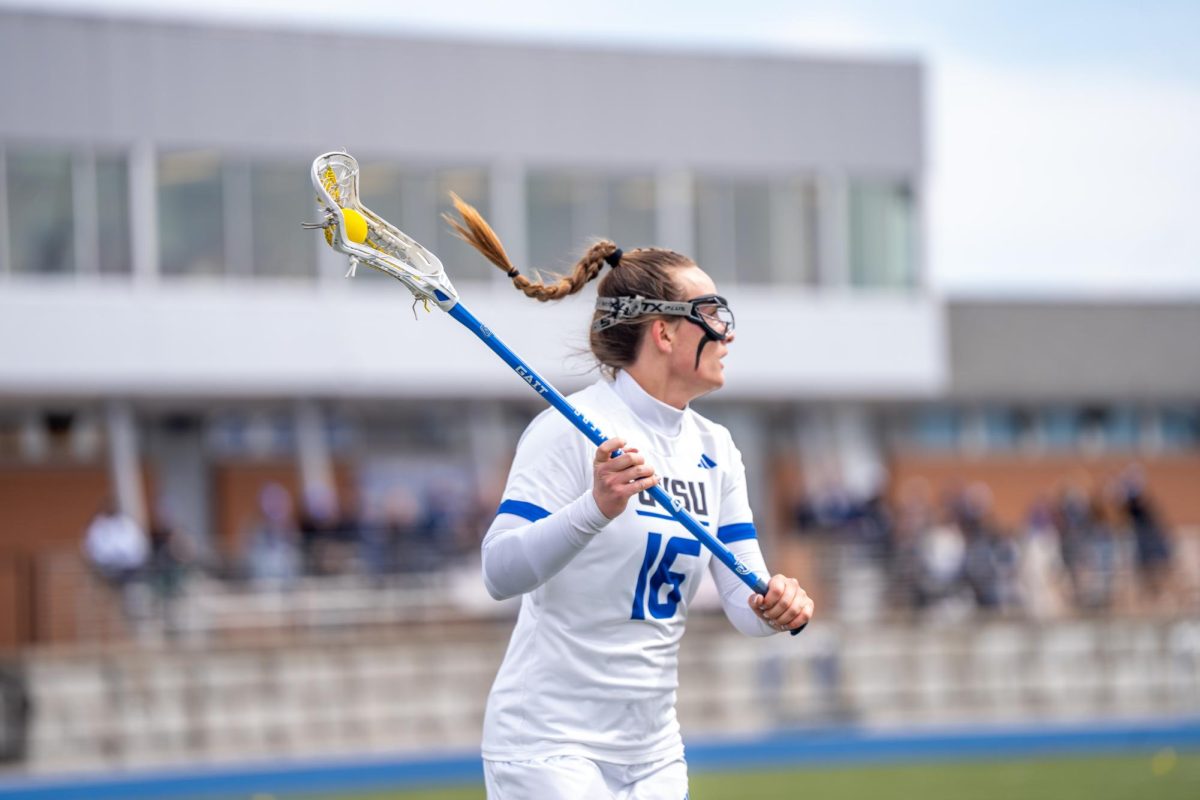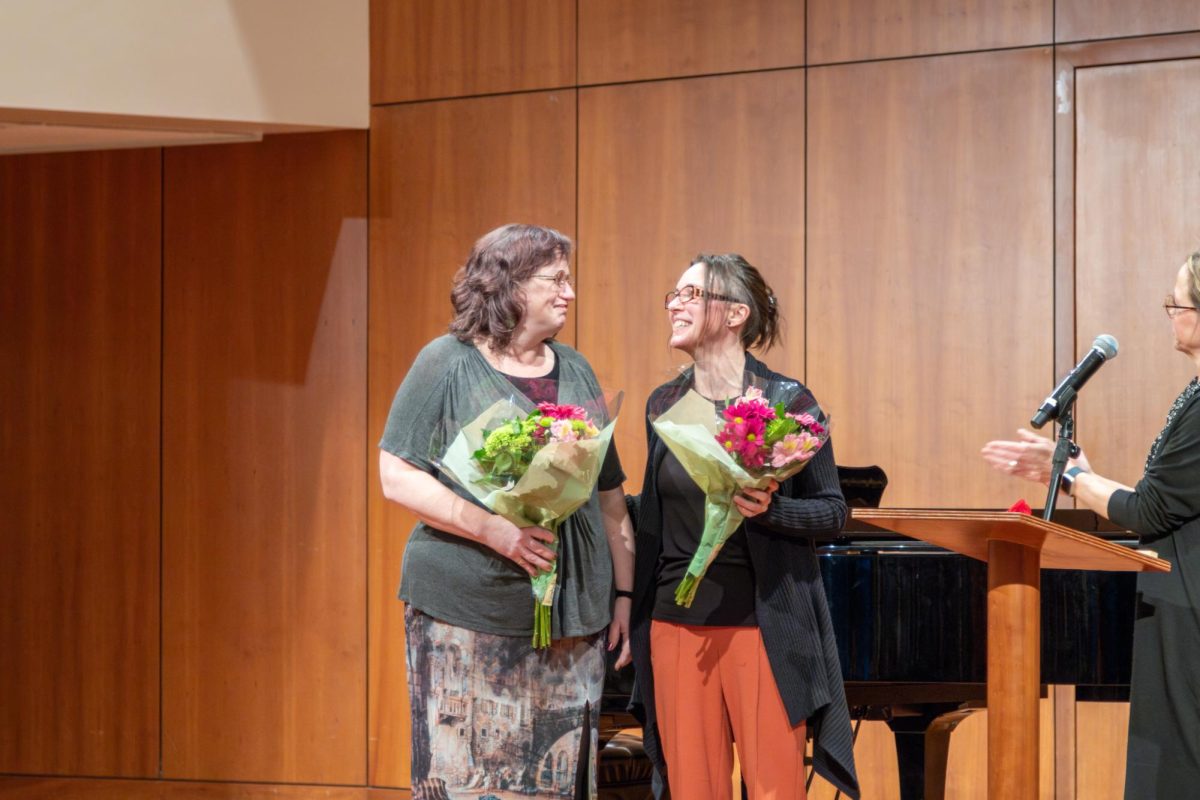GVSU speaker explores loss, public health and immigration
Oct 11, 2021
On Thursday Oct. 7 the Office of Multicultural Affairs invited Dr. William D. Lopez to speak on campus in collaboration with their events for Hispanic Heritage Month. Lopez spoke on the importance of talking about deportation not only in the aspect of the people deported but also realizing how it impacts the people left behind.
Lopez works at the University of Michigan as a Clinical Assistant Professor in the school of public health. He often teaches about immigration and policing, viewing how that impacts people of color.
He wrote his first book last year, “Separated: Family and Community in the Aftermath of an Immigration Raid,” his presentation reflected back on his book and the people he interviewed in order to write it. The book features the stories of families impacted by the loss of their husbands and fathers, men who were taken away from their families by ICE. He interviewed those who were left behind after a raid in Ann Arbor in 2013.
Lopez reflected on his family, bringing up that he was the son of an immigrant parent and that his grandfather who worked in a tire plant lost his arm. As a child, he thought that was normal.
“I just thought that was kind of my grandfather,” Lopez said. “It wasn’t until later that I started to understand folks who do certain types of work are more likely to get hurt in certain ways. Folks who do agricultural work are more likely to die due to heatstroke are more likely to have back problems and muscle problems than those who don’t do this type of work.”
He realized that his grandfather not having his arm was a story about immigration and who does what type of work in the United States.
“Often we are legacies of advocacy and organizing from our parents and communities that we didn’t even know about because we don’t see them represented in institutions of higher education,” Lopez said.
He focused his talk on deportation and what it looks like in America. Highlighting that deportation peaked under the Obama administration with 400,000 removals. Lopez said this is how immigration is represented, by counting deportations.
“There’s a lot that’s missing,” Lopez said. “A lot more shapes our families and our lives than finally getting put on that plane. If you only look at people who are deported you fail to look at people of other immigration statuses who aren’t removed.”
Lopez said that every single person deported is connected to a larger community. Their families that they have here and those in their lives. He did mention that he didn’t know how to have open conversations about deportation besides just looking at graphs when he started his work.
“Most of the deportations that happened were men,” Lopez said. “So when I focused on telling the story of deportation I was telling a gendered story about what it was like to be a man that was arrested and removed.”
When he interviewed families, wives and sisters of men who were deported, Lopez said it made his “head spin.” He saw that the majority of the pain families feel happens after deportation. In this case, the wife and children of the man that was deported took a bus to Mexico, because the mother was unable to provide for their children alone. However, they all were American citizens.
“All of the damage I’ve been describing does not show up on the graph of deportation,” Lopez said. “This is the invisible pain that many of us feel in our communities that doesn’t exist in the public discussion of immigration enforcement.”
With his profession being also tied to public health, Lopez looked at the link of immigration and public health and how that makes people sick. As he interviewed people they consistently brought up the word “leche,” which means milk in Spanish.
“For some of us leche is nourishment, it’s more filling than water,” Lopez said. “It keeps us full, it keeps us healthy. For our infants, leche is this essential bond between them and their mothers. Leche is something that should be easily accessible.”
In an interview with one of the women whose husbands were detained, she made the example that leche makes their oatmeal more filling but her detained husband is being fed oatmeal with water in it, stating that he isn’t being taken care of.
Lopez also found after interviewing someone that after her husband was taken away it impacted her not only mentally but physically as well. She found that she was no longer able to nurse her infant.
“There are a few things we need to be healthy and one of them is social support,” Lopez said. “There’s three kinds of social support, emotional support, financial support and informational support. Most of those types of social support often require going to someplace.”
After raids, Lopez mentions that these social networks start to strain because of the fear of being deported. Family dynamics are also seriously impacted due to deportation, those left behind may not be able to provide for their whole family, causing them to take more jobs. This is called sudden single-motherhood.
Lopez mentioned actions people can take in their community to help those affected by deportation. One of them is voting on helping everyone get driver’s licenses regardless of their immigration status. As well as voting on the sheriff, it’s an elected position and the sheriff decides whether or not to send information to ICE and whether or not they want to hold someone who is undocumented.
“Push the immigration discussion and push it beyond deportation,” Lopez said. “Complicate it, make it messier, make people think about it.”





